Exploring Options, Finding Opportunities
Winter
2018
Feature
Exploring Options, Finding Opportunities
Rachel Kaufman, Editor and Kendra Remond, Contributing Writer
First, the good news—a degree in physics leads to a wide variety of career options. The challenge is that successfully navigating all of the available opportunities can be overwhelming, especially when most students are only exposed to the physicists at their school—those who have earned a PhD and are now working in academia.
Because there are so many possible pathways available, deciding on a good fit for their unique set of knowledge, skills, and (most importantly) interests is difficult for many students. SPS has a number of resources designed to help students navigate this challenge, from the AIP Careers Toolbox, designed specifically for students interested in entering the workforce after earning a bachelor’s degree, to profiles of physicists (like those featured here) and data on the common paths of physics majors.
Check out the projects on the following pages to see which ones might help you in your own career journey, and be sure to browse the profiles of the not-so-traditional physicists featured here—they might just open your eyes to opportunities you never knew existed.
The AIP Careers Toolbox
You can find physics majors in ALL kinds of professions—science writing, medicine, law, history of science, acting, music, healthcare, and more. The Careers Toolbox will give you a deeper awareness of the wide range of career options for physicists, and it will help you figure out how to get the job you want. It’s packed with resources for finding career help on campus, overcoming obstacles you might run into, and for empowering you to make your physics department more “career friendly.” It also includes hands-on activities to help you narrow down your career options and then nail the job you want.
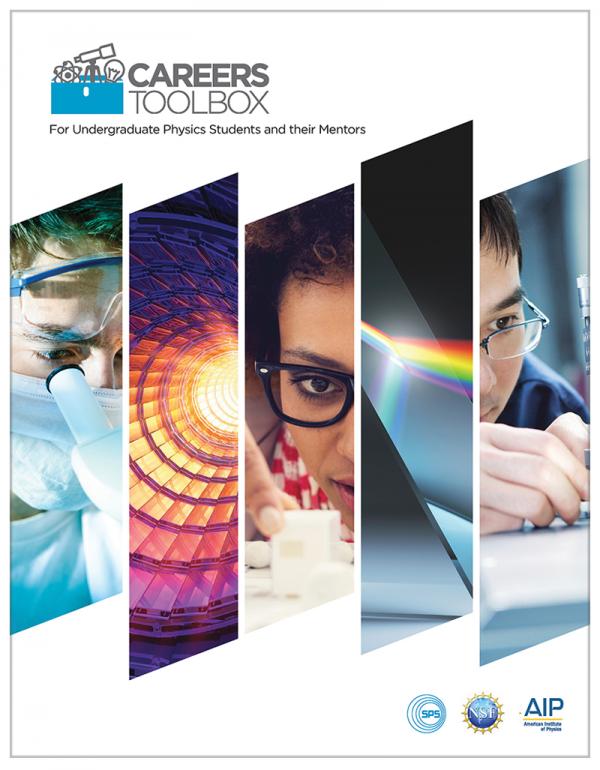 Learn more at: www.spsnational.org/career-resources/career-pathways
Learn more at: www.spsnational.org/career-resources/career-pathways
Career Advice for Students
Need specific advice? SPS has deep dives into various career-related topics in webinar form available online. In the webinars, you can learn about networking and interviewing, for example. There’s also a webinar perfect for most physics undergrads, with the title “I’m about to graduate—What on earth do I do now?” (If that doesn’t resonate, consider yourself lucky!)
Prefer to read rather than watch? SPS also has dozens of articles on job-search topics. Learn about networking, informational interviews, and using LinkedIn effectively. There are also tips on broader topics, like figuring out your goals and values in life.
Get these resources at: www.spsnational.org/career-resources/webinars and www.spsnational.org/career-resources/advice
Learning from Those Who Came Before
Sometimes you just want to hear how other people handled a situation similar to one you find yourself in. A great way to do this is to find a mentor you can talk with in person. But if that’s not possible—or if your mentor hasn’t been through the situation you’re struggling with—you can learn from “virtual” mentors. The SPS Observer publishes advice from experienced voices on almost every possible topic imaginable: internships, outreach, job fairs, even learning from failure.
Read that advice at: www.spsnational.org/the-sps-observer/sps-observer-departments/pathways-advice-experienced-voices
Finally, if the physicist profiles that follow pique your interest, read about the many other careers for physicists by visiting SPS’s physicist profiles page at www.spsnational.org/career-resources/physicist-profiles and Sigma Pi Sigma’s list of “Hidden Physicists” at www.sigmapisigma.org/sigmapisigma/radiations/hidden-physicists.
Best of luck on your career journey!
![]()
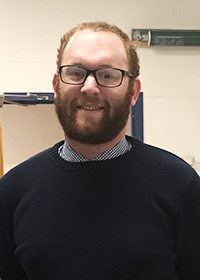
I always knew I wanted to help people by teaching. I started as a history education major, but I switched to physics because, well, physics is easier!
My favorite lesson is a lab on projectile motion called Shoot for Your Grade. The students have to calculate where their projectile will land, and they get a better grade the closer they hit.
Motivation: I teach for that “eureka moment.” I get to show kids cool stuff. A lot of kids think physics is just a hard, scary subject with a lot of math, but they don't think about the cool stuff that you can do with it.
Advice for students: Do what you love. And we always need educators in the sciences—there's never an overpopulation of science teachers, so if you're a physicist and want to be an educator, you'll have no problem finding a job.
Physicists tend to make great teachers because we think logically, we're tough, we're smart, and we can handle any challenge.
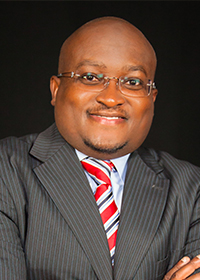 Peter Muhoro, BSc Physics and Math, Hampton University; MSc Applied Physics, University of Michigan; PhD Applied Physics, University of Michigan, Vice President of Strategic Industry Research and Analysis at the National Rural Utilities Cooperative Finance Corporation
Peter Muhoro, BSc Physics and Math, Hampton University; MSc Applied Physics, University of Michigan; PhD Applied Physics, University of Michigan, Vice President of Strategic Industry Research and Analysis at the National Rural Utilities Cooperative Finance Corporation
If you asked me if I ever thought I'd work at a finance entity, my answer would have been no. I'm not a finance person, but I continue to learn as much as I can about finance. I help electric co-ops—not-for-profit, member-owned electric utility companies—figure out what the future looks like. When somebody comes to me and says, "I want to install a battery bank, can you loan me $1 million?" it's my job to understand the technical and business factors that make that a good or bad loan.
Key skills: Communicating and public speaking. I went back and read my dissertation, and I was like, "I'm a horrible writer!" Years later I've improved my writing skills. Practice makes perfect.
Daily challenges: I've run into a lot of "Well, we've always done it this way," or "We tried this, and it didn't work." That's challenging, because I want to be like, "Let's jump in and try it."
Motivation: Creating change—I want to look back some day and say my input was one of the reasons this project was successful. That gets me moving.
Advice to students: Find several mentors. The classroom is great, but it's being around someone and seeing how they do things that can be exactly what you need to learn.
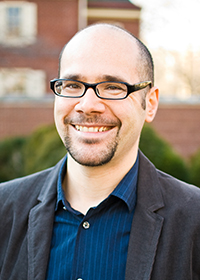 Sean Grullon, BS Physics, Florida International University; PhD Physics, University of Wisconsin–Madison, Machine Learning Data Scientist, GSK
Sean Grullon, BS Physics, Florida International University; PhD Physics, University of Wisconsin–Madison, Machine Learning Data Scientist, GSK
As I was getting to the end of my postdoc, I recognized that I really enjoyed doing physics research, but I didn’t want to be a professor. I had worked on a lot of statistics, data analysis, and machine learning in my research career. At the time, the data science field was taking off, and that’s when I decided to take what I learned in research and apply that to industry. And I’ve been pleasantly surprised by the number of very interesting technical challenges and problems that need to be solved in industry.
Why physicists matter: Physicists are well suited to be data scientists. They’ve looked at and analyzed real data. My personal experience is, computer science is great, but a lot of CS and math students haven’t dealt with the complexities and messiness of real data.
Key skills: Fundamental math and statistics. Machine learning is a hot topic these days, but when you break down the algorithms, it’s just linear algebra with a little bit of chain rule, and also technical skills, like Python, which I used a lot in my academic career, too. Getting involved in research projects early on would help expose you to that language.
Motivation: The most exciting thing is how quickly this field is changing. The software I used two years ago? Nobody uses it anymore. The approach I used two years ago? Nobody uses it anymore. It’s exhilarating.
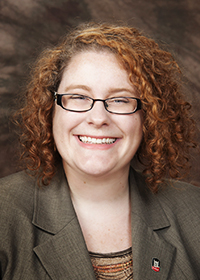 Anna Quider, BA Religious Studies and BS Physics and Astronomy, University of Pittsburgh; PhD Astronomy, University of Cambridge, Director of Federal Relations, Northern Illinois University
Anna Quider, BA Religious Studies and BS Physics and Astronomy, University of Pittsburgh; PhD Astronomy, University of Cambridge, Director of Federal Relations, Northern Illinois University
I spend time making sure that the people in power know what’s important to my university. I work on everything at the federal level that touches our university, so student financial aid, immigration, etc. - but also things that affect our faculty, like funding for the National Science Foundation or the National Endowment for the Arts, or policies that affect research. And I also work on things that affect the university as an employer, like tax policy. So there’s a whole range of things I have to learn all the time! It’s one of the best things about my job.
Key skills: As a physicist, I learned how to approach complicated problems, and I’m not intimidated by them. Physicists work on problems that may literally have no known solution. It’s similar to when you’re trying to figure out how to solve a policy problem.
Physics also gave me a strong numerical sense. I ask questions about the data: What’s the sample size? What was the selection bias in this survey? How was this data analysis completed? And so on.
Advice to students: If you are interested in policy, get policy experience! Take political science courses while you’re doing your physics coursework. Or volunteer on a campaign—you could do an hour a week and still have a worthwhile experience. It’s going to result in dynamic reference letters, getting a sense of the broader world out there, and frankly, I think it makes us all better citizens when we have an involvement in the civic process.
Most universities, even small ones, have somebody like me on staff. Find that person and email them, see if you can learn about their job. They might have an internship opening!
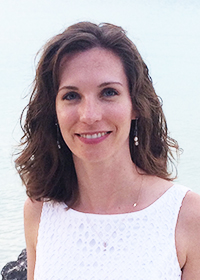
As a physicist, I was inspired to understand more about the human mind after working as a National Aeronautics and Space Administration (NASA) Mission Control Center flight controller and astronaut instructor. Now I work as a research affiliate with MIT, studying how people react in time-limited, life-critical, restricted communication environments—think astronauts or special ops forces. As an applied scientist, I have the opportunity to work with individuals performing these critical jobs, which is one of my favorite aspects.
Key skills: It’s important to have a solid understanding of the science and be up to date on the latest research. It’s also key to build a network within the scientific community. Finally, be confident in your ideas and stay persistent.
Daily challenges: I have to manage my own time and deadlines. I apply “life/work integration.” Sometimes I’ll work late at night or on the weekends if I know that will help me get in a long workout or take advantage of good weather to go flying. (I’m also a private pilot.)
Future plans: To keep applying the science while using my core physics education to inform the way I approach challenges. I also hope to one day own a seaplane.
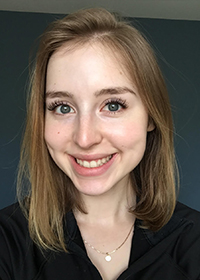 Bailey Groendyke, BA Music and BS Physics, Grand Valley State University, Applications Engineer, Steelcase
Bailey Groendyke, BA Music and BS Physics, Grand Valley State University, Applications Engineer, Steelcase
I am currently the acoustics lead on the Innovation Management Office team at Steelcase, which makes furniture for offices, schools, and classrooms. I specifically look into ways Steelcase can incorporate acoustics into their products, whether it be monitoring the acoustics of a space, researching new acoustic technologies for challenging areas, or applying acoustically sensitive products that improve the soundscape.
Key skills: Being creative and willing to learn. Sometimes there’s a standard way to solve a problem, but maybe there’s a new technique or material we can use that is more effective and less costly. Even though I’m the acoustics lead on the team, there is still much more that I have to learn.
Daily challenges: Communicating with my colleagues in non-science departments about the importance of considering acoustics. Acoustics and wave behavior in general are not always intuitive concepts for people, but they’re important to take into account!
Motivation: My passion for physics has always been partly fueled by my love for music. On a more personal level, my little brother has a hearing disability. He struggles in the classroom and in other areas with poor noise control, like a cafeteria or gym. Even for those without hearing disabilities, acoustics are important. Good acoustics can be the factor in landing the big business deal over a conference call, a student learning about an important physics concept, or a patient in the cardiac ward making a full recovery. //
